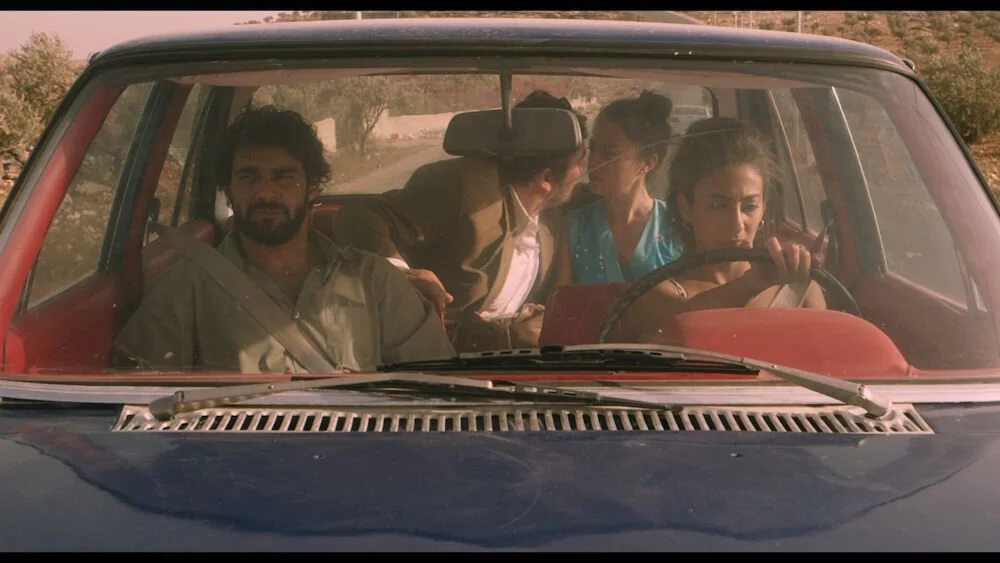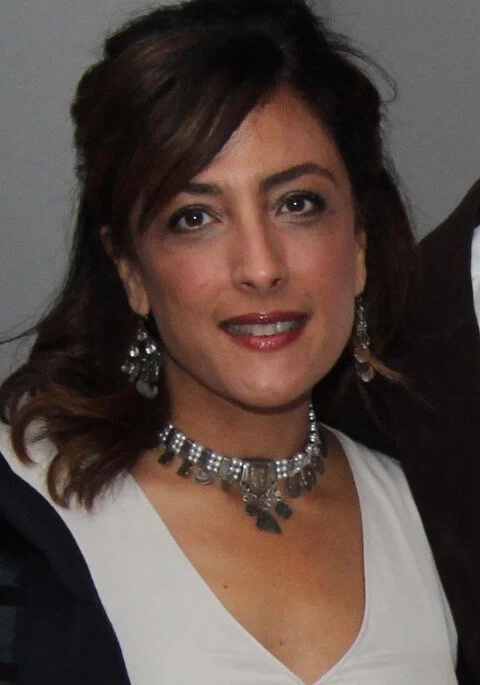One of my favorite films in Berlin this year is not in Competition. Actually it’s not even in any of the sidebars. You’ll find Najwa Najjar’s stunning, heartwarming latest feature at Berlinale’s European Film Market, with a screening on the 22nd of February, at 9.30 in the Simon Bolivar Saal.
Jordanian-Palestinian filmmaker Najjar has been someone whose films I measure up all other works to, both from the Region as well as those made by women filmmakers. I’ve often asked myself why… I think the simplest answer is that her unique, personal brand of filmmaking appeals to me as a fellow strong, thoughtful woman, but also as a lover of the kind of cinema that exists to create a dialogue and open up possibilities. Najjar makes films not simply to show her work up on the screen but to change the world. Change our outlook and push us to be better, do better. I’m surprised, year after year, masterpiece after masterpiece, that she’s not as known and celebrated outside the Arab world as she should be. But more on this point later.
Her follow up to my personal favorite ‘Eyes of a Thief’ is ‘Between Heaven and Earth’. The film opens with some infectious title music, which of course makes the viewer immediately connect to the images on the screen. After stating that the story is “Inspired by true events” Najjar takes us on a journey, both a road trip and an emotional voyage along with young couple Tamer and Salma. It is immediately obvious that they once were in love but the feelings they had for each other have gone. They’ve been replaced by a sense of hopelessness that is tangible, and yet never directly addressed — making it all the more tragic. It does help that Najjar cast Mouna Hawa as Salma and Firas Nassar as Tamer, two exceptional actors from the Arab world who create an unspoken, buy-it-at-fight-sight chemistry on screen.
As the couple seek out a divorce from the Palestinian courts, obstacles begin to pop up in their way. Salma is a Palestinian living in Nazareth, Tamer from the West Bank with an entry permit, but born in Beirut. Also, Tamer’s late father seems to have married an Iraqi Jewish woman and they have a son named Tamir — which of course sounds eerily similar to Tamer and could hinder the path of their legal separation because the couple would then need a Jewish divorce court to officiate as well. As they seek out the truth, they encounter couples who make their issues seem mild, they get arrested, get bailed out by and spend time with Salma’s parents, travel across breathtaking landscapes and all the while accompanied by a wondrous soundtrack which brings together some of the greatest names in music from the Arab world and the Maghreb. From Souad Massi’s haunting ‘Salam’ to Yuma’s ‘Smek’, Natasha Atlas’ Arabic version of ‘I Put a Spell on You’ and featuring the cool French/Egyptian band Orange Blossom, Lebanon’s Tania Saleh, Nazareth’s own Gazal, Tot Ard from the Golan Heights and al Raseef, a street band from Ramallah.
Ever present is of course the occupation, this is modern-day Israel seen through the eyes of Palestinians. There is nothing light or carefree about the way the journey unfolds, even if it turns out to be undoubtedly a love story.
What I scribbled down, halfway through Najjar’s film in my notebook, is that each moment of watching ‘Between Heaven and Earth’ feels like a precious gift. But also a thriller of sorts, as we sincerely start to root for this couple and want to find out just how the story ends. An ending which by the way, left me speechless. And more than a couple of weeks later, still thinking about its message and the number “48”.
Another strongpoint of ‘Between Heaven and Earth’ is the dialogue. Najjar possesses a gift for making her characters sound like real people. It’s something I find missing from 90 percent of the films I watch, where characters speak as if they stepped out of a second-rate novel. Najjar’s writing is always from the heart, the beautiful, healthy, talented heart of a woman filmmaker. That’s why women directors and writers need to be supported.
And one last point about the filmmaker. I love the silent statements Najjar makes in her films, which are up to the viewer to catch or simply view the work at face value. Either way, it will feel like a treat. In ‘Between Heaven and Earth’ at one point, as the couple first embarks on the road trip that should lead them to their divorce, there is a mural of Netanyahu and Trump kissing on the lips in the background. That’s when the viewer begins to wonder if this couple’s relationship could have survived anywhere but here. Anywhere but in the Occupied Territories. Anywhere but a place that feels like a true hell for humanity.
Finally, I’ll give up trying to comprehend why ‘Between Heaven and Earth’ isn’t in Competition at Berlinale or in Un Certain Regard in Cannes in May. Truly. I feel this strongly about this film. Is ‘Between Heaven and Earth’ a woman’s film? Unapologetically yes! And from where I’m standing, that’s a good thing — actually, a great thing! Because isn’t it time we begin to watch women’s films instead of just talking about them and how the industry is biased, not balanced on the side of women and blah blah blah? At the Cairo International Film Festival where the film world premiered it won the prestigious Naguib Mahfouz best script writing award, which to me just proves that Najjar is one great storyteller!
Also, remember that women tackle issues in their work that no man will touch and that’s the only way we can begin to clear the world of injustices and wrongs.
The only reason I can think of why Najjar’s work isn’t as celebrated as it should be is that I think male programmers and festival directors in the West find her creative voice intimidating and their women counterparts are afraid to rock the boat and maybe even a little jealous of another woman who knows her craft so well and isn’t afraid to take risks. While still managing to remain a woman’s woman.
So, if you find yourself craving a great film by an artist that is way ahead of her time in aesthetics and themes, watch ‘Between Heaven and Earth’ at the EFM in Berlin.



